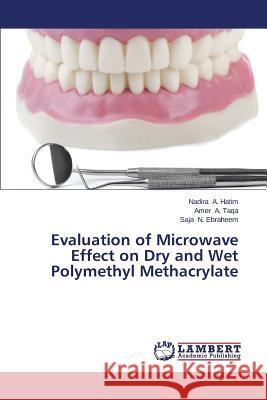Evaluation of Microwave Effect on Dry and Wet Polymethyl Methacrylate » książka
Evaluation of Microwave Effect on Dry and Wet Polymethyl Methacrylate
ISBN-13: 9783659247705 / Angielski / Miękka / 2014 / 180 str.
The aims of this study is to evaluate the effect of the of the microwave radiations on the acrylic powder itself by irradiating it with microwave radiation at different power (270watt, 360 watt), time (1/4 hr, 1/2 hr), and environmental situations (dry, wet and immersed with water) to see the possibilities of improving its properties by comparing the cured samples prepared from the microwave irradiated acrylic powder with those samples prepared from control and high impact acrylic. The results showed that there is a significant increase in the transverse strength, and decrease in the hardness and residual monomer tests, especially for those groups that prepared at power 360 Watt for 1/2 hr. The water sorption and solubility, dimensional accuracy, showed that there is no significant difference between the tested groups. FTIR test DSC and density test showed that there is a change in the microwave irradiated acrylic in contrast with the control one. Conclusions The results approved that the use of microwave radiation produce an effect on the acrylic powder, and this effect improve the transverse strength and residual monomer concentration of the denture base acrylic specially for 36
The aims of this study is to evaluate the effect of the of the microwave radiations on the acrylic powder itself by irradiating it with microwave radiation at different power (270watt , 360 watt) ,time (1/4 hr, ½ hr), and environmental situations (dry, wet and immersed with water) to see the possibilities of improving its properties by comparing the cured samples prepared from the microwave irradiated acrylic powder with those samples prepared from control and high impact acrylic. The results showed that there is a significant increase in the transverse strength, and decrease in the hardness and residual monomer tests, especially for those groups that prepared at power 360 Watt for ½ hr. The water sorption and solubility, dimensional accuracy, showed that there is no significant difference between the tested groups. FTIR test DSC and density test showed that there is a change in the microwave irradiated acrylic in contrast with the control one. Conclusions The results approved that the use of microwave radiation produce an effect on the acrylic powder, and this effect improve the transverse strength and residual monomer concentration of the denture base acrylic specially for 360











